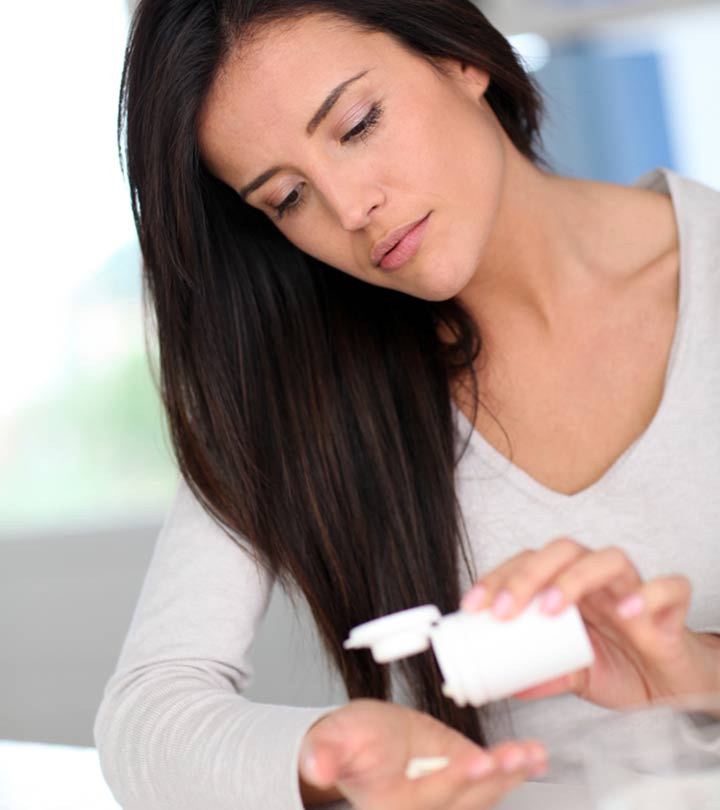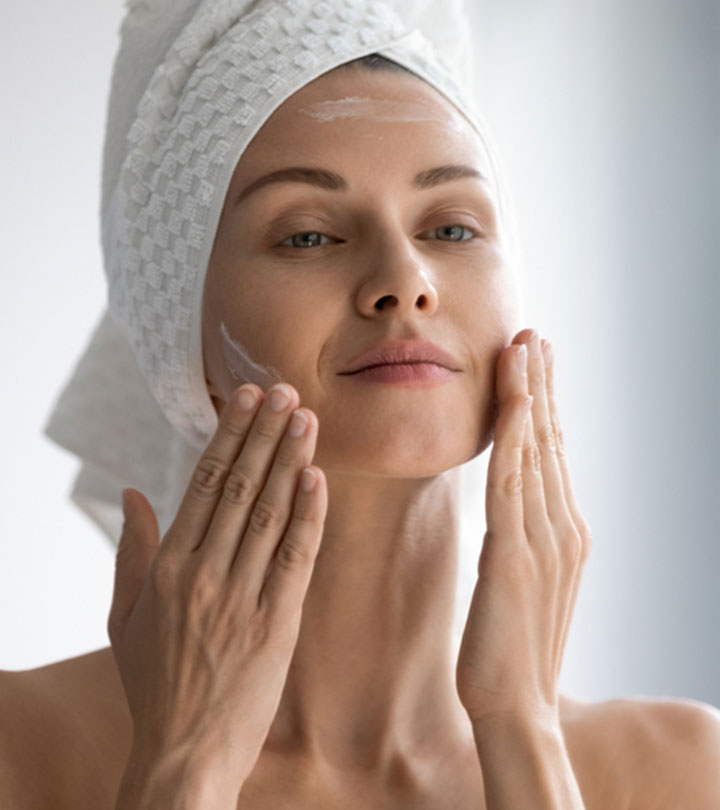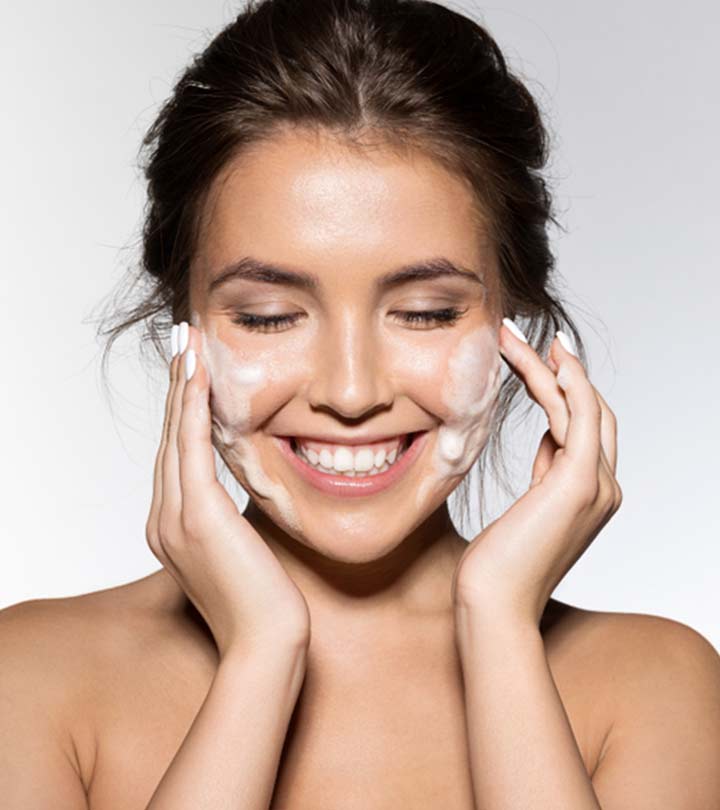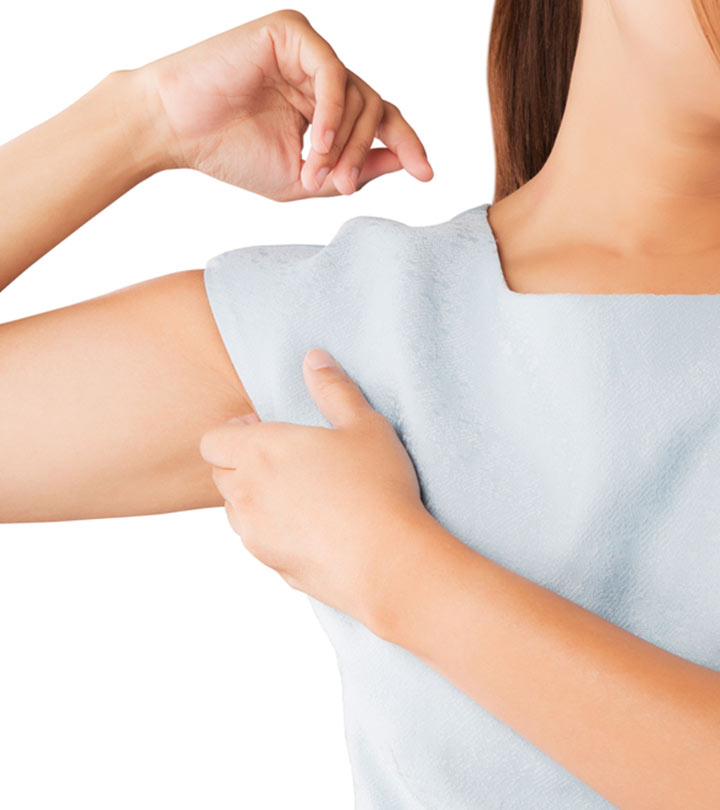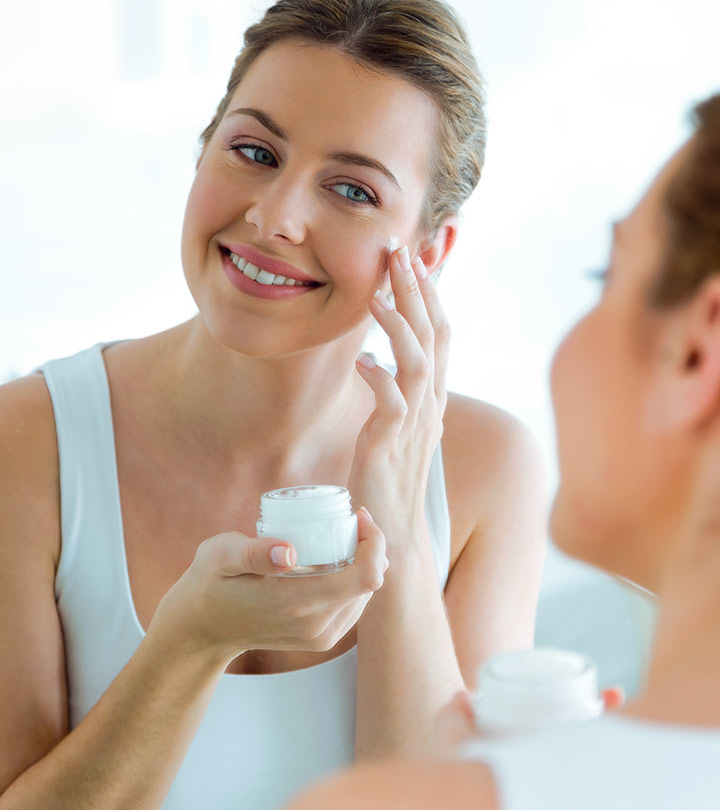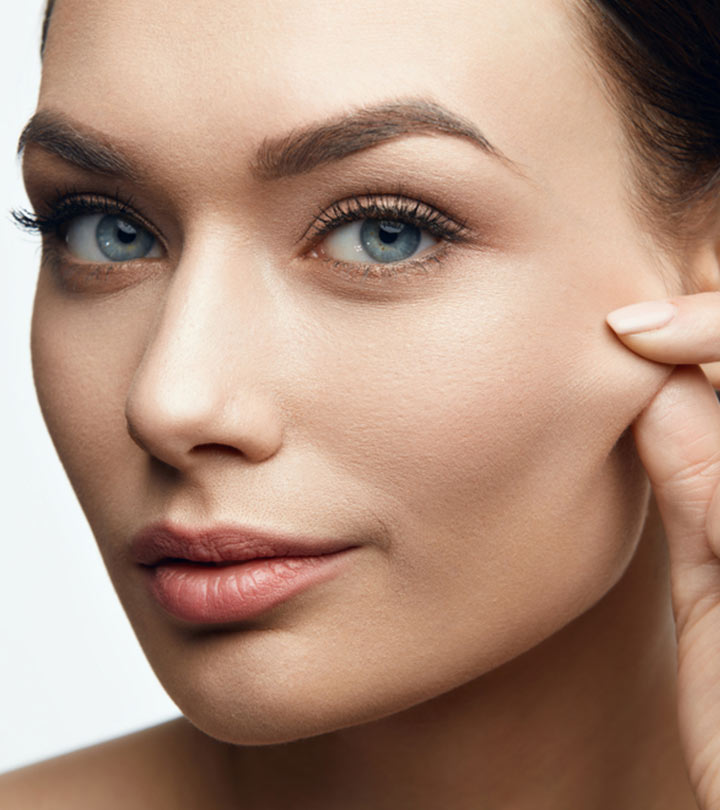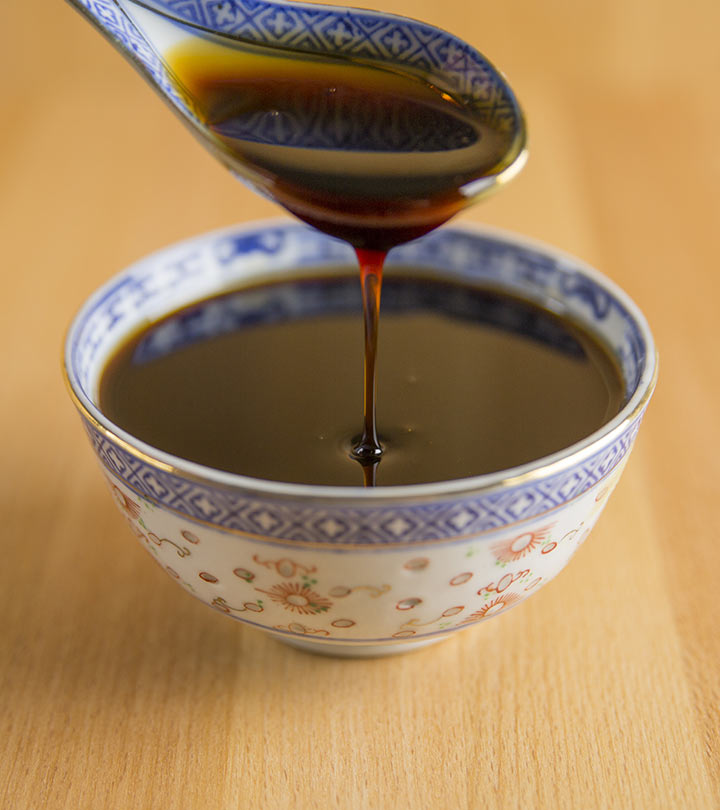You might have popped aspirin to get rid of that throbbing headache, cold, and fever. However, do you know that you can also use aspirin for acne? Applying crushed aspirin to the breakouts is a common home remedy. However, does this practice has any scientific merit? Does topical aspirin heal acne or reduce inflammation? This article attempts to explore the truth behind the claims. Read on.
In This Article
Aspirin: Does It Has Any Role In Dermatology?
iStock
Aspirin is used as an analgesici XA type of drug specifically formulated to reduce or relieve pain without causing the loss of consciousness. for relieving pain. However, with time, it has evolved from its traditional role as a pain reliever and become a drug that has a wide range of applications.
In dermatology, aspirin is used in off-label and unapproved ways. It is beneficial in the treatment of Raynaudi XA disorder in which particular parts of the body become numb and cool under certain circumstances. ’s phenomenon, erythema nodosum (a type of skin inflammation), vitiligoi XA condition that causes the loss of skin color in patches or blotches due to a lack of melanin in the skin. , postherpetic neuralgiai XA persistent ache in the areas of your skin where you had shingles infections. , skin changes caused by niacini XA nutrient found in the vitamin B complex, required by the body in minimal doses to function and maintain health. , sunburn reaction, mild type 1 lepra reactions, and an itchy skin condition associated with polycythemia vera (1).
Another study found that topical application of aspirin could help reduce histamine-induced swelling and redness. The study involved 24 patients with skin rashes caused by sodium lauryl sulfatei XA foaming agent/surfactant found in a majority of personal care items, soaps, and industrial cleansers. (SLS) (2).
Therefore, aspirin, when used both orally and topically, can help control the symptoms of several skin conditions. But, is it equally effective on acne?
Aspirin For Acne: Is It Effective?
iStock
So far, there is no scientific proof that aspirin can reduce acne.
So why do people use aspirin for acne? The idea behind using aspirin for acne stems from the fact that aspirin contains acetylsalicylic acid. Salicylic acid is a popular topical medication for acne. Acetylsalicylic acid is a synthetic derivative of salicylic acid. It is created by a chemical reaction between salicylic acid and acetic acid (3). They may sound similar, but aspirin is not the same as salicylic acid and vice versa.
However, many people who used crushed aspirin on acne, especially inflammatory acne, have seen results. How is it possible?
Inflammatory acne is caused when your pores are clogged by dead skin cells, sebum, and bacteria. Once these pores are unclogged, the infection disappears, and the inflammation reduces. Aspirin is mainly used for reducing inflammation, but its efficacy in lowering acne-related inflammation is not known.
The main idea behind using aspirin for acne is to use acetylsalicylic acid – the way salicylic acid is used – to treat acne. Sometimes, it works, and sometimes, it doesn’t. Aspirin helps dry out the inflammation, which could clear the infection and reduce acne.
Did You Know?Applying aspirin on acne more than once a day may cause side effects.
Although clinical studies are showing the efficacy of aspirin in reducing skin inflammation related to multiple conditions, there’s no scientific evidence to support this popular DIY remedy for acne. If you still want to try using aspirin to treat acne, we are here to help you.
Check out the next section.
How To Use Aspirin For Acne
Shutterstock
There is no specific way to use aspirin on your face for acne. As it is a home remedy, there is just a general method of using it. However, you can add a few ingredients to modify it according to your’s skin’s needs.
To use aspirin:
- Crush a few aspirin tablets in a bowl.
- Add enough warm water to create a paste.
- Once you get the desired consistency, use the paste as a spot treatment.
- Apply the paste on the inflamed area and leave it on for a maximum of 15 minutes.
- Wash it off with warm water.
- You may follow it up with a moisturizer.
To this mixture, you may add:
- Aloe vera gel – It helps reduce inflammation when applied on the skin (4).
- Tea tree oil (just a drop or two) – It helps in treating mild to moderate acne (5).
Related: 31 Health Benefits Of Tea Tree Oil And Its Side Effects - Witch hazel – It has anti-inflammatory properties that help soothe acne (6).
Related: 24 Amazing Witch Hazel Benefits, How To Use, & Side Effects
These ingredients can help clear the infection and reduce acne. You can add them to the aspirin and water paste and use it as a spot treatment. You can repeat the process once every day until the infection has cleared.
There are several precautions that you should follow when using aspirin on your skin as it has certain side effects.
Possible Side Effects Of Topical Aspirin And Precautions
iStock
- Aspirin can dry out your skin and may worsen breakouts. Therefore, avoid using too much of it on your skin.
- It may cause skin irritation along with redness and flakiness. Instead of using it all over your face, use it only for spot treatment. Also, follow it up with a moisturizer.
- If you are using salicylic acid or any other acne treatment on your skin, avoid using aspirin. It may dry out your skin further.
- It may increase your skin’s sun sensitivity. Always apply sunscreen when going out in direct sunlight.
- Avoid using aspirin for acne if you are pregnant or lactatingi XThe process of producing and releasing milk from the mammary glands in the breasts during pregnancy. .
- Avoid aspirin if you are allergic to Nonsteroidal Anti-Inflammatory Drugs or NSAIDs, such as Advil and Ibuprofen.
SubscribeDid You Know?The topical application of aspirin may worsen symptoms of respiratory allergies in people with asthma.
Many of us rely on home remedies and quick fixes to heal occasional breakouts. Using crushed aspirin for acne is a widely used home remedy. However, it may not work for everyone, and topical aspirin may also aggravate the inflammation. Therefore, you must be extremely cautious before trying random home remedies for managing acne. Since multiple factors may trigger acne, you must first determine the exact reason. Hence, always consult a doctor to determine the causes of the breakouts and follow the prescribed treatment for better acne management.

